INSPIRATION
Impala EcoLodge Kisumu
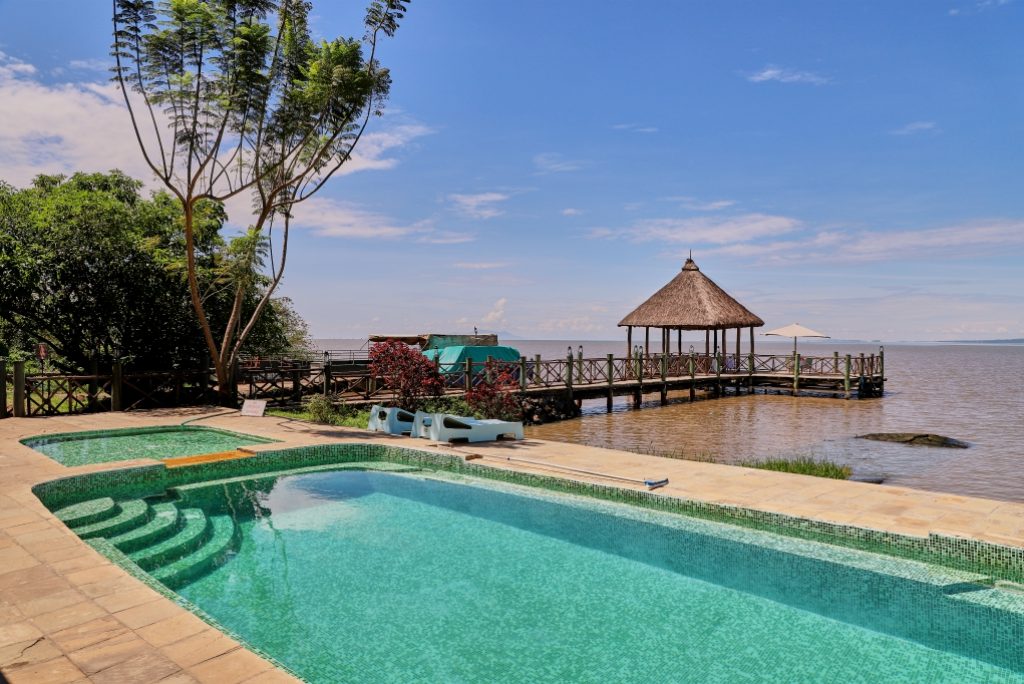
The water playfully laps against the small, wooden boat rhythmically rocking it back and forth as if to the lake’s very own sweet tune. The sun splashes across the sky in striking orange hues as a fish eagle flutters across my periphery. I am yanked out of my reverie by the fisherman’s paddle incessantly tapping against the wood, and as if in response, a hippo’s head bobs out of the water and starts inching towards us. I have seen YouTube videos of hippos attacking boats, and this canoe is certainly no speedboat; should it lunge, we’d be done for. My fear is quickly forgotten when we pass Hippo Point, now predominantly a hang out center where a crowd is gathered marvelling at the sunset. As we inch towards Impala Ecolodge with its wooden jetty illuminated by the soft orange glow of lamps lined along its ramp, a place I have only ever seen from a boat during lake cruises like this, I can’t believe we’ll finally be staying there tomorrow!
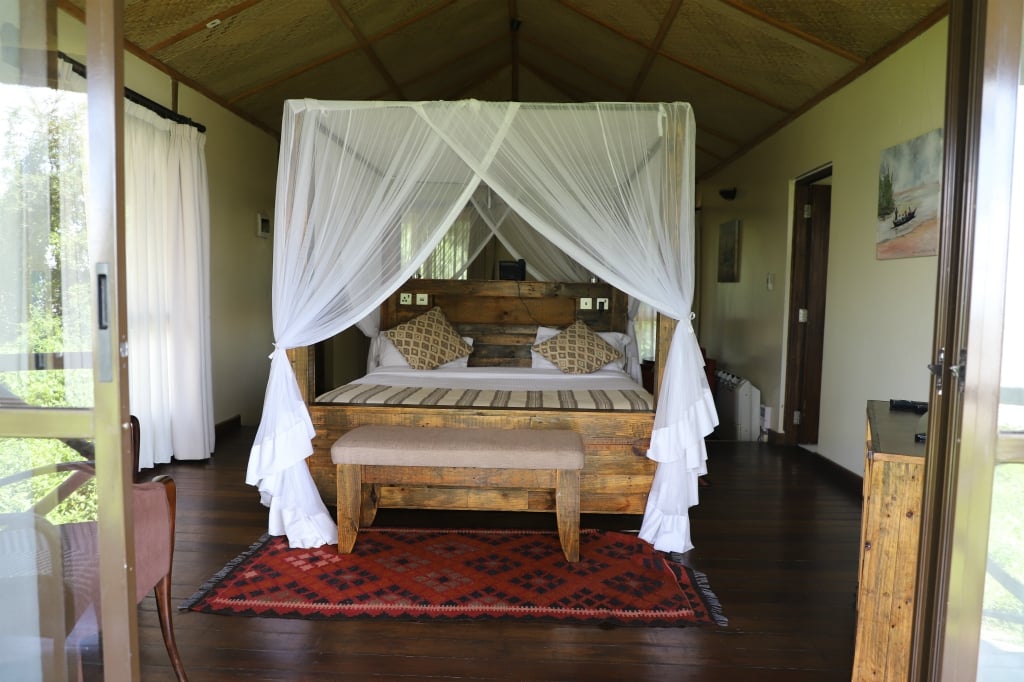
Kisumu Impala Sanctuary sits barely a five minute drive from where I spent several years of my primary school, and yet, in that time, I recall visiting only once; the memories are hazy. I like to consider Kisumu my hometown, but the truth is, every time I return (once this year, so far) I can’t help but feel like a stranger. This city is fast developing. Kisumu waits for no one. We pay our entrance fees at the gate: Ksh 215 per day for me, a Kenyan citizen, and $22 for my companion, a non-resident. We walk… yes, walk…past zebras and impalas which are peacefully grazing in the surroundings, unperturbed by our presence. The lodge sits at the edge of the sanctuary and it takes a five minute walk to get there.
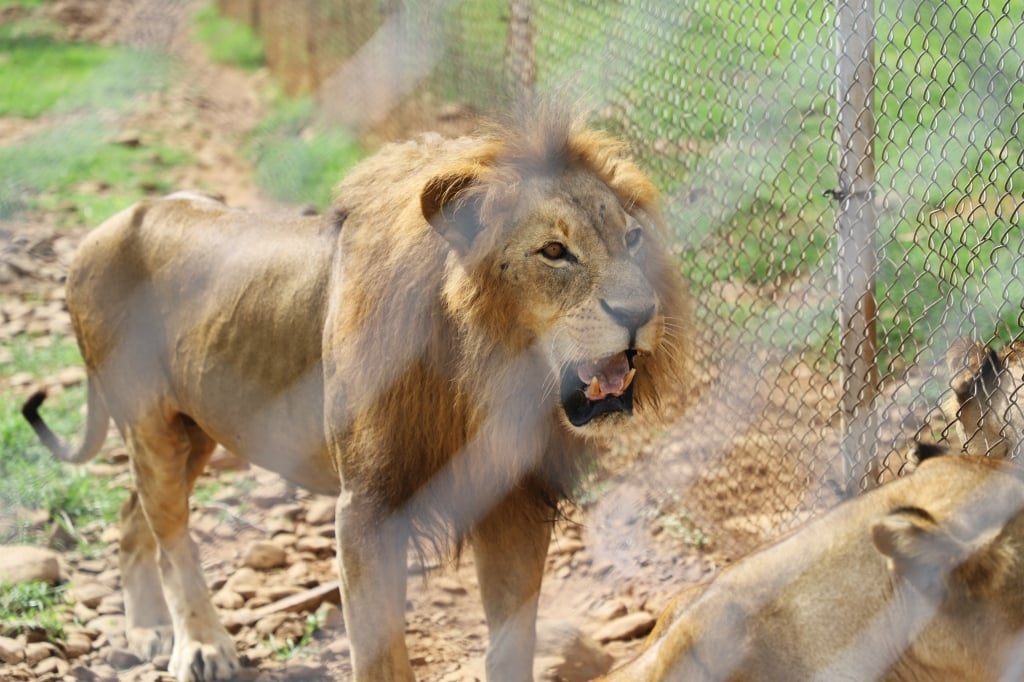
There is a long, shaded, wooden ramp elevated above the ground such that it feels like you’re walking amidst trees and this leads us from the reception down to our tent. There are 12 double tents in total, each named after luo numbers (ours, for instance, is “aboro”, meaning “eight”). The structure is semi-permanent with wooden floorboards and canvas walls. A large cozy bed above which hangs a mosquito net sits in the middle of the main room. Behind it is a small living area with two armchairs, a perfect nook for entertaining should you happen to have friends over. A walk-in closet and changing area sits to the left, as do the bathrooms. Right in front of the bed is a large sliding glass door which reveals a balcony. Here, there are comfortable wicker chairs to relax in as you take in the stunning view; birds flying past, the lake almost coming right up to your doorstep. On this private balcony we would spend our evenings drinking wine, playing some RnB and slow dancing with a spectacular setting sun as our backdrop. The park closes at 6:00pm, but since we were staying at the lodge, our curfew was extended to 11:00pm, with strict warning not to roam the grounds at night because the hippos come out to the land at that time.
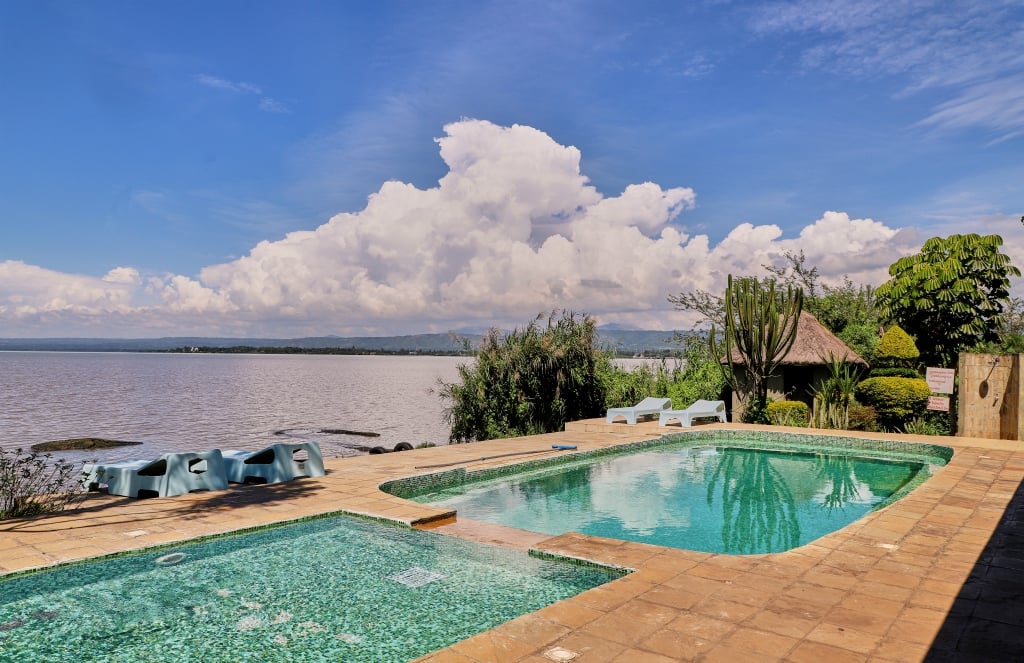
Impressive meals are served either in the eco-friendly makuti-thatched restaurant which stands next to a pool overlooking the lake, or on a gazebo right above the water such that it feels like you’re dining on the deck of a boat. It is raised on stilts within the lake but close to the shore. Here, you can tuck into a three course lunch while watching the fishermen standing on one edge of their boats while using long poles to steer themselves forward in the shallow water. Lake Victoria unsurprisingly makes Kisumu synonymous with fish, boat rides and birdwatching. The locals have broken down the art of preparing tilapia (because if you watch how it is handled from the moment a fisherman traps it in his net to the way a chef meticulously plates it up for a patron, then it really is an art) to two options: deep or wet fried. The fish is traditionally served with ugali, kachumbari and sukumawiki or some other indigenous vegetables. Be sure to order a plate at Impala Ecolodge’s restaurant.
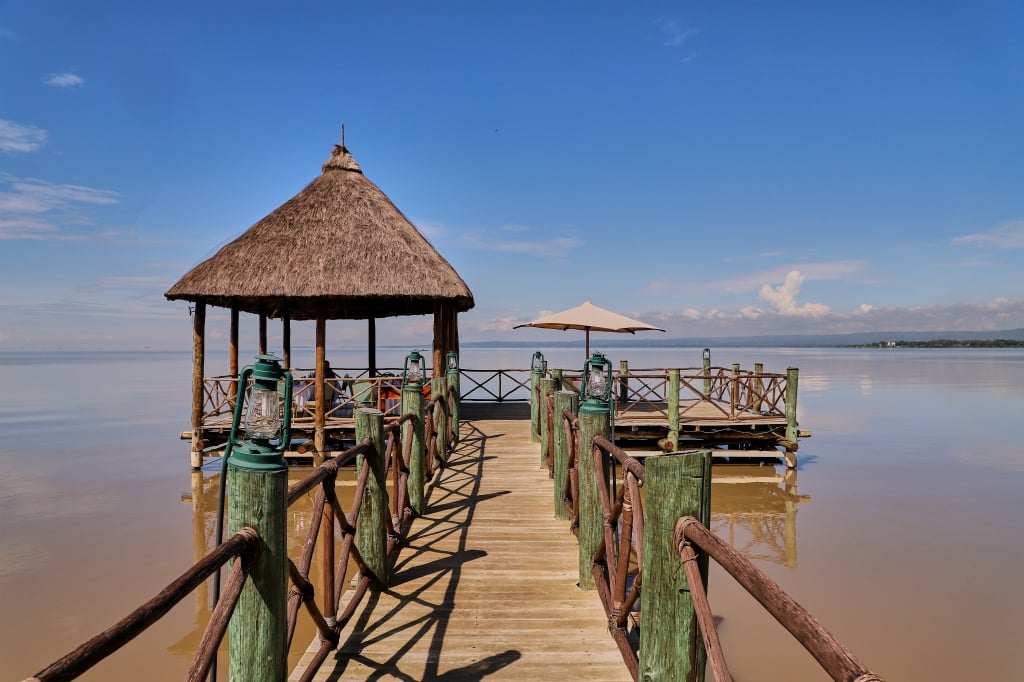
Our mornings were spent wandering this serene park where impalas and zebras are free roaming, but other animals such as giraffes, an ostrich, two prides of lions which are kept separately so they don’t fight for the territory, monkeys, a buffalo, two warthogs, leopards and more are caged with enough space to roam.
Our Top Experiences
SEEN SOMETHING YOU LIKE?
Enquire now and our team will create a custom itinerary tailored to your preferences.

CONTACT
enquiries@nomad.africa
Tel: +254 708 238 738
Purple Nomad Ltd
PO Box 69671 - 00400
Mwanzi Avenue, Nairobi, Kenya



